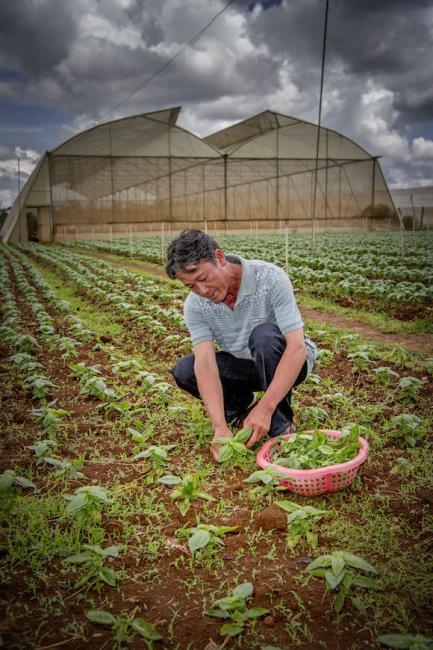
In a country like Viet Nam, where almost half the workforce is engaged in agriculture, sustainable economic growth will depend on finding solutions that allow farmers to flourish. As the country evolves, the need is arising to develop innovative finance to support the conversion of agricultural into a more dynamic sector.
Outside the city of Da Lat, Dinh Xuan Toan is experiencing some of those solutions. For many years he grew vegetables on his family farm in the Central Highlands. The region’s temperate climate makes it ideal for agriculture, but he struggled to maximize the farm’s potential and support his family.
A few years ago, he and a small group of local farmers joined an agriculture support program called Hortidalat, a multipronged effort to accelerate the development of modern greenhouse vegetable production. Mr. Toan learned how to develop business plans, how to select and care for crops to strengthen his market success, how to operate a greenhouse, and how to apply for the loan he would need to build it. In short, he learned how to be a small businessman.
For Mr. Toan, the impact of this training and opportunity has been impressive. His income has grown three to four times. Thanks to his greenhouse he can produce a high-quality crop of basil that he is able to market consistently all year. In nearby greenhouses, other farmers are growing tomatoes, peppers, lettuce, and other in-demand products, their success fueled by a similar mix of practical support and financial assistance.
Mr. Toan is clearly a satisfied customer. He would love to have several more greenhouses, he told the Special Advocate during her recent visit. But can this comprehensive model, involving business training, technical assistance, market access, and financing, become a practical solution on a national scale? As Viet Nam works to transform its agricultural sector, it’s clear that the availability of financing is just one part of the solution.